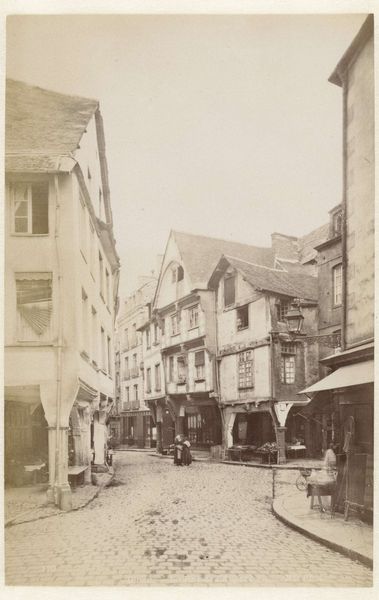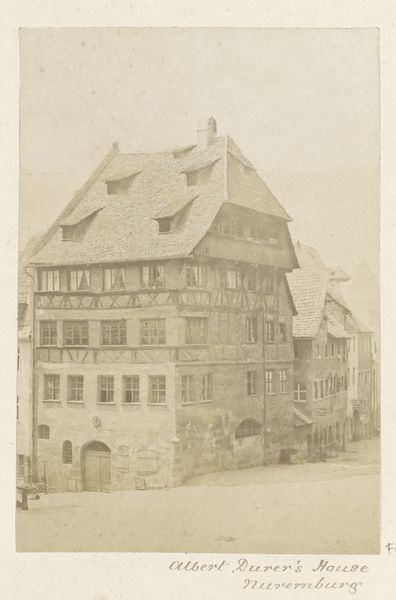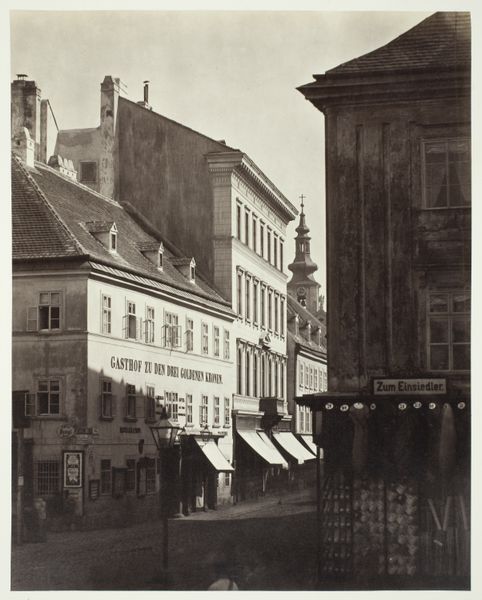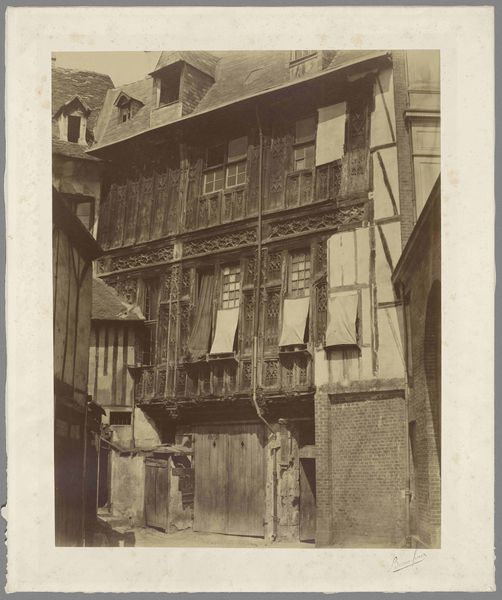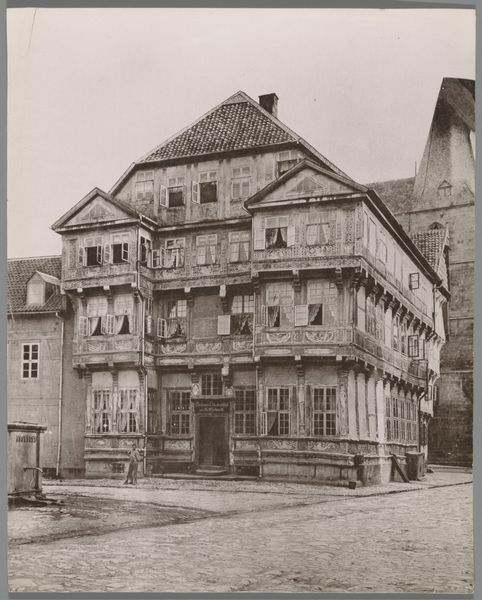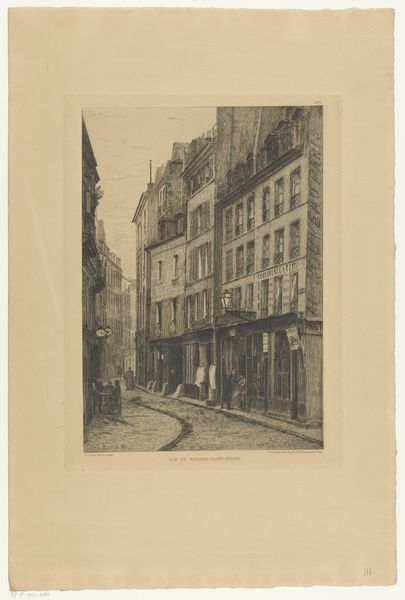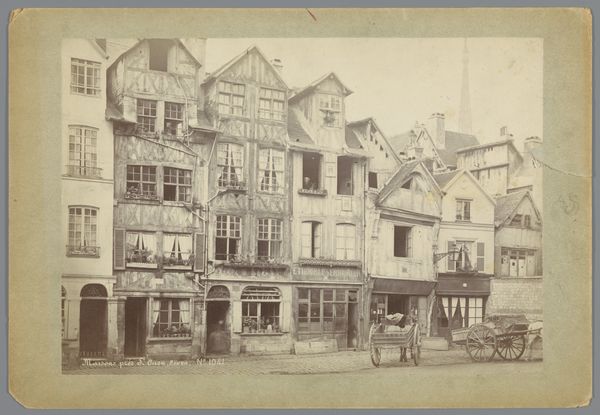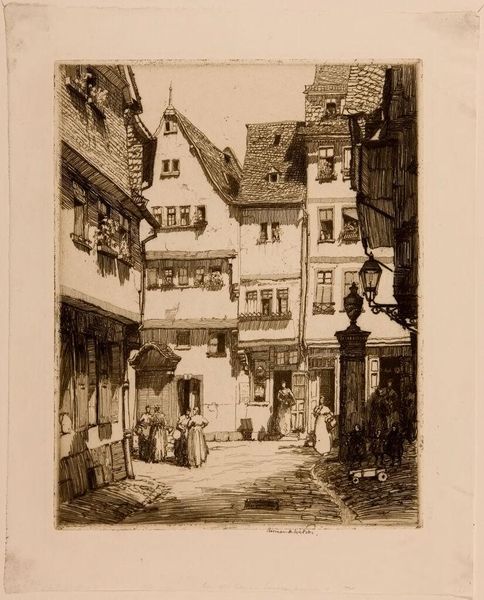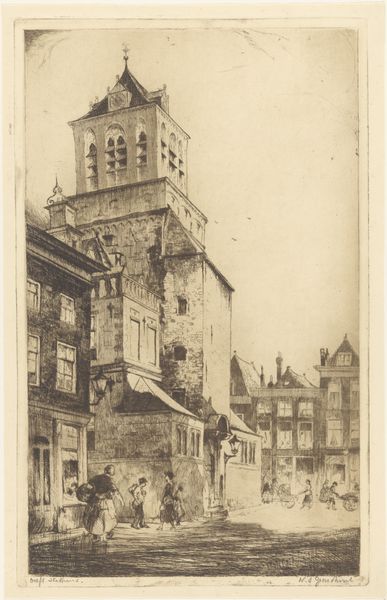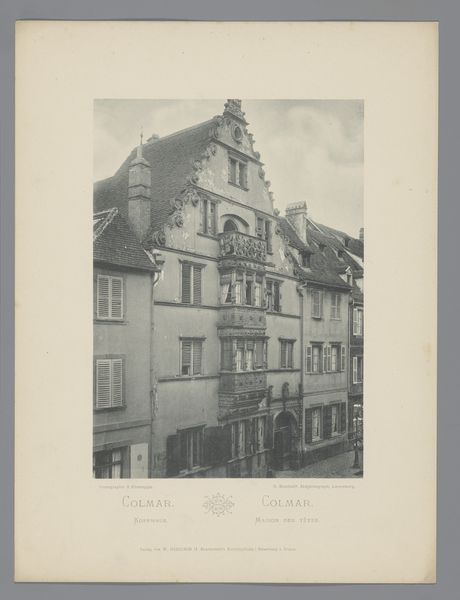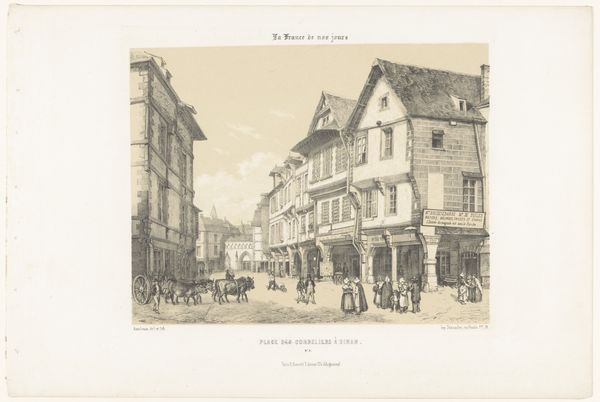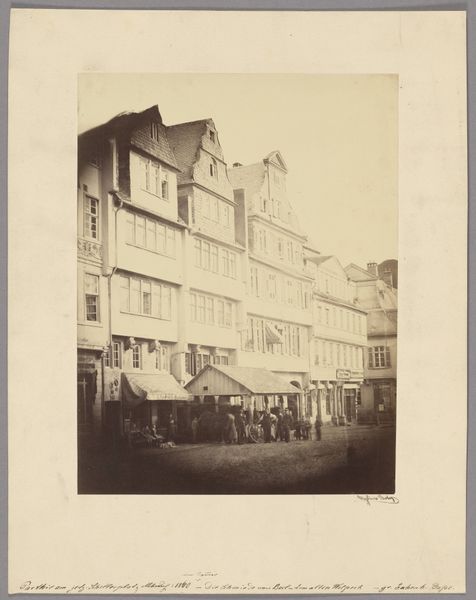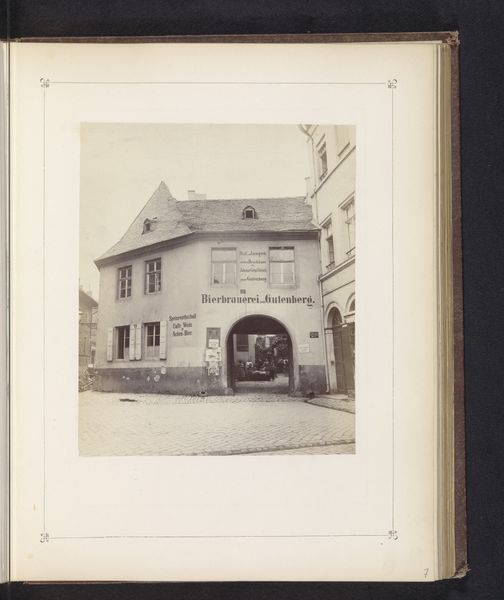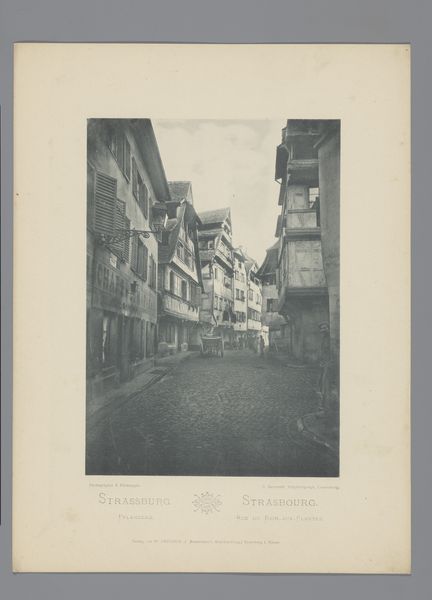
Dimensions: 30.9 x 22.6 cm (12 3/16 x 8 7/8 in. )
Copyright: Public Domain
Editor: Here we have Edmond Bacot’s "Fontaine de la Croix de Pierre, Rouen," a photograph dating from around 1852 to 1854. It's quite a striking city scene; the architecture feels so present. What stories do you think a piece like this holds? Curator: It holds volumes! Beyond its aesthetic charm, consider what it omits. We see a streetscape, seemingly untouched, but whose lives are invisibilized? Whose labor built this Rouen, and whose experiences are absent from this idealized portrayal? Think about class structures; photography, in its early days, often catered to a specific demographic. Editor: That's a great point! It feels… curated. Did Romanticism play a role in how the image was framed? Curator: Precisely. Romanticism often idealized the past, presenting a selective vision of history. Bacot likely chose this view to highlight the historical aspects of Rouen, maybe obscuring elements that conflicted with a particular narrative of French identity. How does the angle of the shot influence this message? Editor: Perhaps by emphasizing the height and grandeur of the buildings, which evoke a sense of history and permanence, thus lending authority to the historical narrative? But is it possible it's simply…documentary? Curator: Documentary photography always has a perspective; neutrality is a myth. Every choice - the time of day, the framing, what’s included and excluded - conveys a message, intentionally or not. How might this photograph, with its specific perspective, impact viewers’ understanding of urban space and historical continuity? Who would be comfortable in such a space and who wouldn't? Editor: I never considered how deeply ingrained perspective could be. This has really opened my eyes to how much critical thinking is needed when looking at even what seems to be just a ‘simple’ photograph. Curator: Exactly! Understanding context unlocks new layers of meaning and forces us to confront whose stories are told and whose are silenced.
Comments
No comments
Be the first to comment and join the conversation on the ultimate creative platform.
